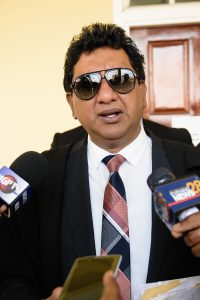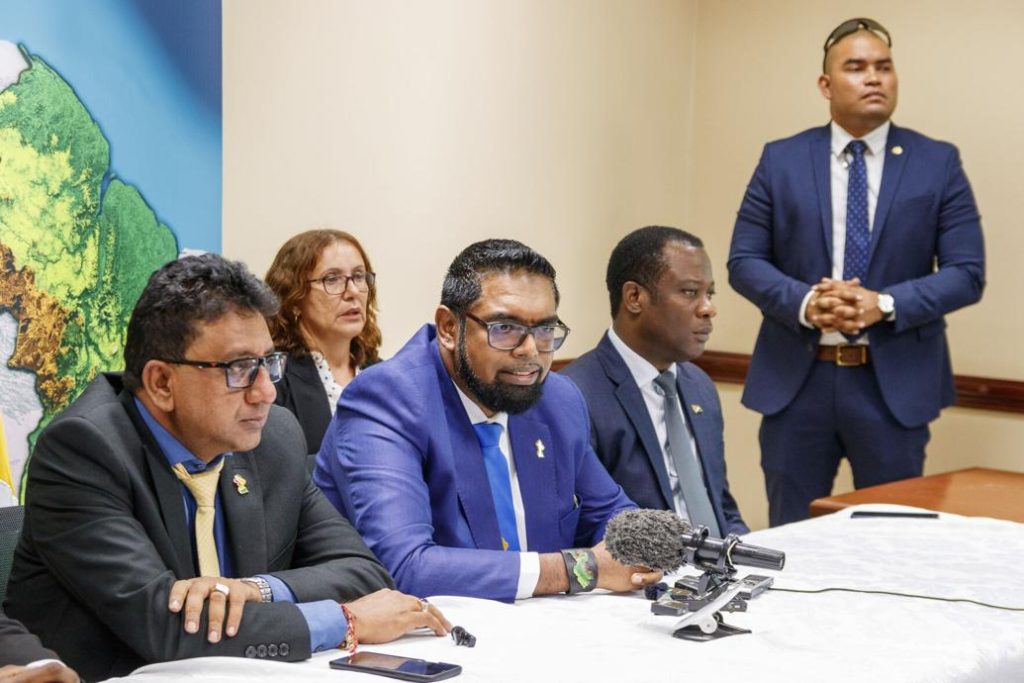Reference is drawn to media report on Attorney General Anil Nandlall’s explanation and analysis of the St. Vincent (Argyle Airport) agreement in response to criticism from various circles. I commend the AG for his perspective on the trip. He is right to call out those who criticized the engagement. Guyana gained much from the meet – peace dividend obtained.
Nandlall has bene on the side of President Ali on critical legal matters including border issues. As he said rightly stated, Guyana did not cede an inch relating to the border controversy and peace has been obtained at least for an interim period. One has to recognize Venezuela’s ominous and growing power differential; Guyana can’t think of a military push back against Venezuela. One must therefore seek peace and search for common ground and potential for partnership in other areas (like trade) not having to do with the border.
Critics, detractors, and opponents often comment on varied issues, including on the border controversy, that the public find amusing. The criticisms of Guyana’s agreed participation in the St. Vincent’s meet are among those that are laughable. People are free to make criticisms on any issue but these must be objective and presented in context. Criticisms of going to Venezuela and agreeing to talk (to avoid war) must be resented against the backdrop of the threats and intimidations that Guyana has been facing over the last year and particularly so over the last three months. Aggressive Venezuela posturing in recent weeks have cast a long shadow on peace in the region and the world knows the after effects of war as we have been witnessing on TV in Ukraine and Palestine. Talking is a better alternative than defiance.

The border controversy has brought enormous challenges to the country’s diplomacy, among other things, and it has been happening during the emergence of a new and complex Cold War between the West and Russia and China (the latter two being recent friends of Venezuela). Respected scholars are needed to present Guyana’s case. And the AG has been appearing at several forums in person and virtually explaining cogently and brilliantly the emergence of the border controversy and why it is before the ICJ. Few have command of language as he does and he has made the case not only in the legal sphere but also in international diplomacy and international law and on the legal issues. He has demonstrated that he has master international diplomatic lingua even though he is not a student of International Affairs (Relations). It explains the supremacy of his Ministry in dealing with legal opinion and advice across all Ministries including Foreign Affairs and why he has been in the forefront on the diplomatic front in recent weeks.
No AG in recent memory, going back to the days of Premier Jagan’s administration since the late 1950s, has been so well admired and respected as Nandlall. When Nandlall speaks, people stop what they are doing and listen. He commands respect. He understands the English language quite well and the meaning of words. He is known to be a man who carefully chooses his words but speaks freely and accurately with rare exceptions. There is hardly any other like him in government or in parliament or in politics. He is among the best political or academic articulators I have come across globally in my forty years of international travel, and I did travel a couple million miles.
It is Nandlall’s ability to explain with clarity and simplicity Guyana’s (legal) position (backed by international law) on the border controversy that has assured Guyanese at home and in diaspora and the world at large that Essequibo belongs to Guyana; the law is on the side of Guyana. In addition, he has convinced fence sitters in CARICOM and many other countries to understand and appreciate Guyana’s position in seeking a resolution of the controversy through the ICJ and not through bilateral negotiation. This does not mean bilateral discussions should not take place (for peace, trade, etc.), but it must not replace the ICJ as the arbiter of the border controversy. The state of the border (peace or war) will determine the state of the relationship between the two states as it has for the last 125 years. It is noted that when the border issue was not very contentious and there was peace, there was huge trade between the two nations particularly between 2000 and 2015; rice producers benefited.
The ICJ will adjudicate the border line and Guyana has agreed to accept its ruling as the AG has reiterated in his many presentations to international audiences. Thank you Mr AG for making the case to define our border vis-à-vis Venezuela at a critical juncture in our country’s existence.
